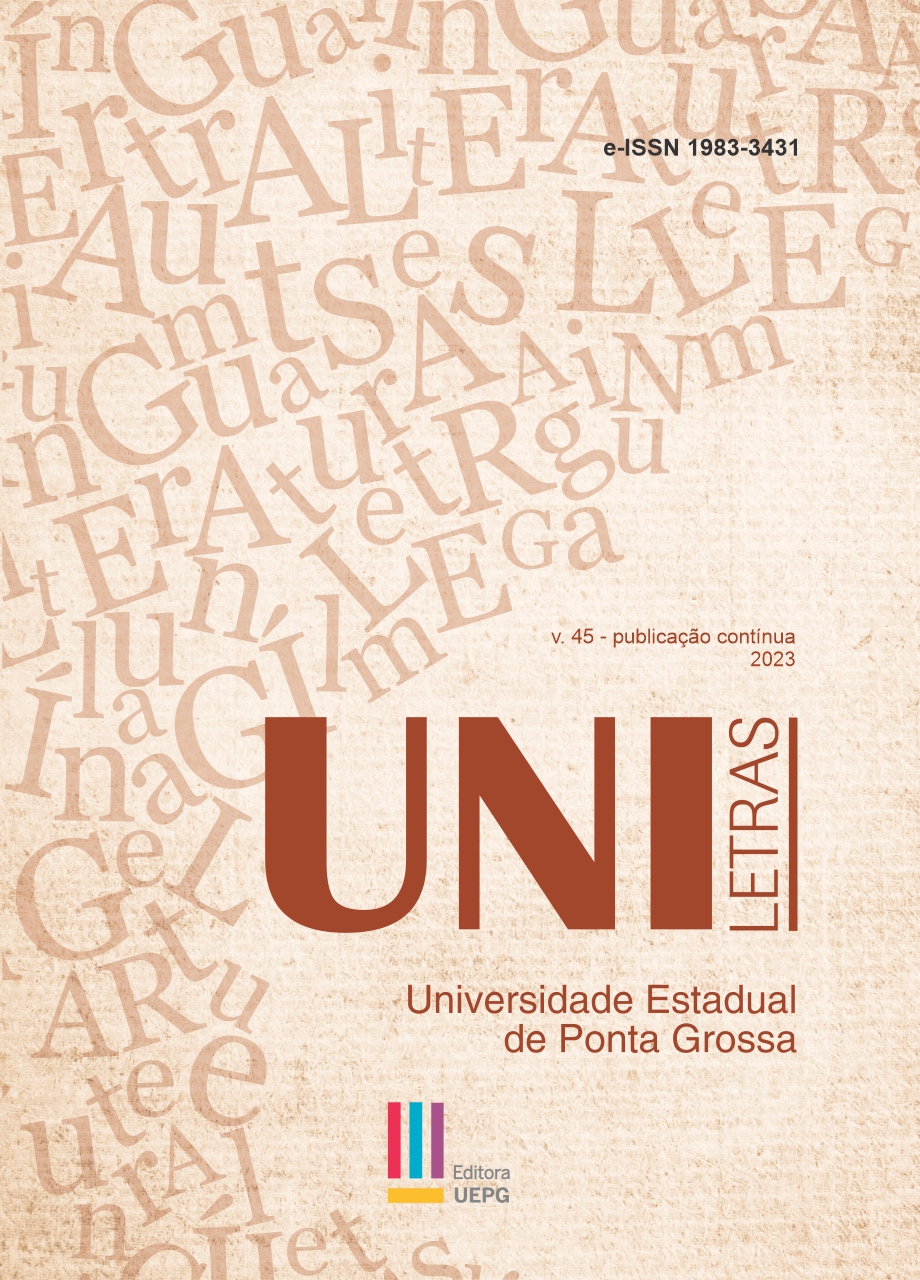THE APPROACH OF THE POEM IN THE DIDATIC BOOKS PORTUGUÊS: LINGUAGENS AND TECENDO LINGUAGENS
Abstract
In this article, the objective was to investigate the approach to poetry in two Portuguese language textbooks and how it contributes to the reader’s literary experience. The following problem was addressed: In what way does the approach to poetry in textbooks contribute to the reader’s literary experience? The theoretical framework adopted for this study included the research of Soares (2011) in the field of literature teaching, the postulations of Cosson (2014) regarding literary literacy, and the research of Rangel (2003) and Alves (2020) concerning the study of textbooks. The results of this work identified a significant presence of poems, but with the absence of specific guidance regarding the characteristics of literary production, particularly in relation to poetry. This indicates a depersonalized approach to literary texts, with emphasis mainly on the exploration of grammatical aspects.
Downloads
Downloads
Published
Issue
Section
License
Authors that publish in the journal agree with the following terms:
a) The authors keep the copyright and grant to the journal the rights of the first publication, with the work simultaneously being licensed under the Creative Commons Attribution License that allows the sharing of the work with the recognition both of the authorship and the initial publication in this journal.
b) This journal provides immediate public access to all of its content, following the principle that making scientific knowledge freely available to the public provides greater worldwide democratization of knowledge. For more information about this approach, visit Public Knowledge Project, a Project that developed this system to improve the academic and public quality of research, distributing OJS as well as other softwares to support the publication system to public/open access to academic sources. Names and e-mail addresses in this website will be used exclusively for this journal purposes, not being available for other ends.

This work is licensed under a Creative Commons Attribution 4.0 International License.





